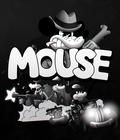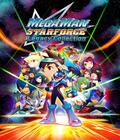Genre: MMORPG
Publisher: NCsoft
Developer: Arena.Net
Release Date: April 28, 2006
Today I'm going to talk about an expansion to a much-loved PC game. Before I get into this, I feel it prudent to explain how much I tried to love (but failed in my efforts) the title this is an expansion for, the free-to-play action-adventure MMORPG known as Guild Wars. Produced by a company called Arena.net, GW has all the usual addictive ingredients: a fantasy setting, fast-action game play, stunning graphics, and a beautifully detailed persistent world. Despite this, I've never quite managed to click with it. I've tried (and tried and tried) to establish a relationship with Guild Wars, more so than any other PC title, and the end result has always been failure. Thus it was with great trepidation that I approached Factions, the long-awaited expansion. Exuberance at the collapse of my perfidy! Such apprehension was for naught; this is a superlative addition to what Arena.net hath wrought.
NCsoft recently announced that Guild Wars had surpassed the two-million subscriber mark, and I think I'd like to use that little trivia tidbit as my ticket out of a lengthy explanation regarding the play mechanics. Let's just take it as given that if you're reading this, you already know that this game is an action-adventure MMO with a heavy focus on PvP and team tactics. Factions includes everything you know and love from the original, adds a whole different feeling and flair, plus it throws in some extra features for a deeper overall experience. The most obvious of these additional elements are the two new character classes (assassin and ritualist), and the geographical area itself – Cantha, a southern Ascalon continent that is ruled by the Empire of the Dragon and home to a maelstrom of tragedy, intrigue and adventure.
The style of Cantha is extremely Asian in flavor. From the architecture through to the non-human races like the serpentine Naga or the chitinous Mantids, this entire continent feels like a fantastical version of ancient China. Was this an intentional nod to a large portion of the Guild Wars player base? Perhaps, although it could also be that Arena.net simply had the sense to embrace a cultural history with a largely untapped potential for gaming myth.
Not many games have tried to employ such heavy Asian themes; in fact I personally can only think of two: the overlooked Blade & Sword and the upcoming Hero Online. Factions certainly has the upper hand on these two others graphically, and the artistic direction employed by the developers has never been in question. I am particularly impressed with the decision to tone down the bloom lighting effect, so that this game looks crisper than the original. Overall, Cantha is as beautiful as it is elegant.
I sadly didn't get any time to dabble in one of the strongest new features to this expansion. The title isn't just a fancy word; there are two very distinct factions in, uhh, Factions that players (or more specifically, guilds) can ally themselves with in order to wage epic-scale war. These are the Kurzicks and the Luxons, two Canthan orders that have been at each other's throats for decades. My guild (Honor of the Grave, for those keeping score) is Luxon-affiliated, but during the course of my time with this game, I only managed to get to level 13. Although this is just over halfway to the level cap of 20, it still precluded my involvement with anything more advanced than the story-arc quests and missions. I would love to be able to tell you how well this feature has been implemented; sadly, all I can accurately say is that it is here and part of the overall package of new goodies to look forward to.
The new Assassin character class is a subtle touch of sinister, complimenting the Necromancer nicely, but written into the game in such a way that playing one doesn't automatically mean you're one of the "bad" guys. In fact, most professional killers in Cantha are considered "honorable" professionals who perform a necessary service. The skills employed by these lethal individuals deal primarily with dishing out a great deal of damage extremely quickly and often with the advantage of surprise. They also have some Hex skills that aren't dissimilar to the Necromancer, abilities that weaken the enemy. Their weapons of choice are dual-wield blades like Stilettos or Sai, and they tend toward light armors that make no sound. Their attribute set of Critical Strikes, Dagger Mastery, Deadly Arts, and Shadow Arts should help provide an idea of the full flavor to the class.
In stark contrast to the cold, ruthless killing of the Assassin are the spiritual benefits offered by the Ritualist. This is very much a support class, offering beneficial spells to enhance the party as well as pet-based offense in the form of summoned ghosts. They can enhance weapon damage, heal party members, and drain the health of enemies while their enslaved wraith-servants take the brunt of any retaliatory actions. The Ritualist attribute set of Spawning, Communing, Restoration Magic, and Channelling Magic presents for the player a class that sits somewhere between Monk, Ranger, and Necromancer. For all the prior Guild Wars classes, Factions includes brand new armor sets so that, for example, a new Mesmer will look nothing like an old one. Of course, if you have a preference for the classic style of protection, you can craft a suit of Ascalon items and re-embrace that old-school flavor.
In my opinion, Factions does a better job of pulling the player into the game than Guild Wars does. The tutorial is smoother and more focused, not as open-ended and puzzling as before. The addition of henchman is introduced right off the bat; you can recruit three NPCs to adventure with as soon as you've finished the training mission. This helps keep the action flowing until you can get into a regular party or a guild. Most of the given quests reward you with gold, experience points, and occasionally attribute points or "monastery credits." These can be exchanged for a wide variety of different items, from bags and dye-removal potions through to "Shing Jea keys" that open the rare-item chests you occasionally find in the wilds.
Of course, the random NPC collectors that crave the raw materials dropped by monsters are still all over the place too, so there are just as many (indeed, more) ways to collect loot in Factions as there are in Guild Wars. Finally, the main story arc of Factions is considerably more immediate and is written in such a way as to make you feel like a major player in the events as they unfold. The sense of being a focal element of an epic story is sadly lacking in most persistent-world games, and I applaud Arena.net for their efforts at preventing the "little fish in a big pond" effect that so many other MMOs suffer from.
 Overall, I'm extremely impressed with what Guild Wars: Factions has to offer. Taking into account the fact that the original release defied my every effort to love and cherish it, the absorbing entertainment offered by this expansion is both surprising and welcome. The combination of setting, graphical tweaks, and additional content have done nothing more than forge the experience into exactly what it should have been from the very beginning. Anyone who was already a fan of Guild Wars no doubt already has this and is in love with it. To all of you reluctant late-adopters, let me say this: Factions is the perfect add-on to use as your starting point. If it can convert a jaded old gamer like myself, imagine what it can do for you!
Overall, I'm extremely impressed with what Guild Wars: Factions has to offer. Taking into account the fact that the original release defied my every effort to love and cherish it, the absorbing entertainment offered by this expansion is both surprising and welcome. The combination of setting, graphical tweaks, and additional content have done nothing more than forge the experience into exactly what it should have been from the very beginning. Anyone who was already a fan of Guild Wars no doubt already has this and is in love with it. To all of you reluctant late-adopters, let me say this: Factions is the perfect add-on to use as your starting point. If it can convert a jaded old gamer like myself, imagine what it can do for you!
Score: 9.0/10
More articles about Guild Wars: Factions











 Guild Wars: Factions offers players an incredible gameplay experience with many new choices, including new regions, professions, skills, missions, and monsters, along with expanded options for both Cooperative and Player-versus-Player (PvP) play, and enhanced features for guilds.
Guild Wars: Factions offers players an incredible gameplay experience with many new choices, including new regions, professions, skills, missions, and monsters, along with expanded options for both Cooperative and Player-versus-Player (PvP) play, and enhanced features for guilds.






























